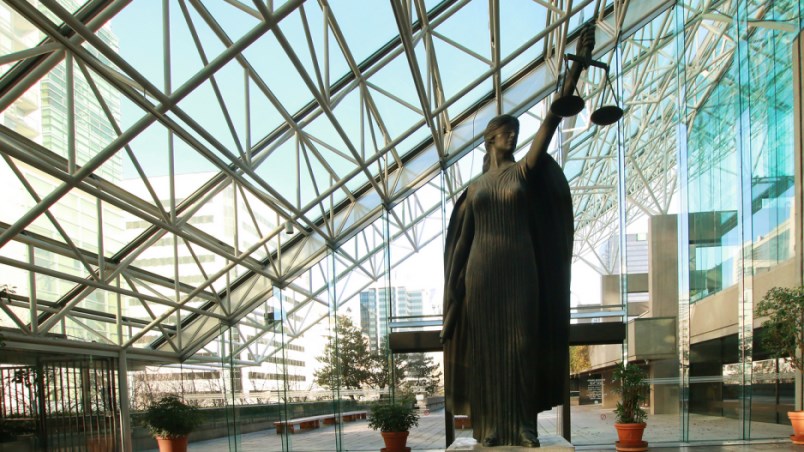The BC Supreme Court has granted a hydropower developer a chance to make pre-trial examinations of two hereditary chiefs of the 麻豆社国产Nation, as well their legal counsel.
In a written decision published on Feb. 5, Master Shelagh Scarth sided with Greengen Holdings Ltd., and ruled it had the right to question Chief Bill Williams, Chief Ian Campbell and lawyer Greg McDade under oath.
This decision is part of a larger appeal from Greengen, which is fighting a decision made by the province back in 2009.
The province denied the company regulatory approvals for a hydropower project in Fries Creek, near Squamish, citing the Nation’s opposition as a key factor.
Fries Creek is a stream that enters into the 麻豆社国产River near Waiwakum Indian Reserve 14 and Yekwaupsum Indian Reserve 19. It is about two kilometres north of Judd Slough.
The Nation says the creek is of cultural value and it is used for spiritual bathing.
The corporation disagreed with this decision and filed legal action in March 2016, alleging that the refusal was politically motivated and not grounded in statutory practice.
In the action, Greengen accused the 麻豆社国产Nation and hereditary Chief Williams of interference with economic relations, and accused the province of misfeasance in public office.
In 2018, the Court of Appeal allowed the company to pursue the lawsuit against the province. However, action against the Nation and Williams was thrown out, as it was time-barred. The province tried to have the court dismiss the action against it in 2020, but this failed.
As a result, the lawsuit is expected to go ahead, and Greengen requested the court to allow it to examine the chiefs and their legal counsel, they are believed to have evidence relevant to the trial. They participated in talks with the province when the company was making the application for the project.
Greengen asked for an order that would allow it to examine Chief Williams, Chief Campbell, Chief Gibby Jacob, and McDade.
In order to grant this order, Scarth wrote, Greengen must demonstrate not only that the evidence it seeks is material, but that it has requested evidence from the application respondents and that they have neglected or refused to provide a responsive statement.
Scarth dismissed the application to examine Jacob, as it failed to meet this threshold.
However, Greengen was able to satisfy the request with respect to Williams, Campbell and McDade.
Scarth noted the Nation members wanted this application thrown out.
“The court should decline to make the orders sought in the application as it clearly constitutes an abuse of process,” reads the respondents’ submission, as recalled by Scarth.
“Greengen is not entitled to know all of the highly sensitive information regarding Indigenous spiritual and cultural practices that gets conveyed throughout the course of Crown consultations on a project.”
However, Scarth ultimately ruled in favour of Greengen.
“I conclude that the provision of such information would not cause embarrassment to 麻豆社国产Nation such that it would be unjust to allow the examination of the application respondents,” he wrote.
“I am satisfied that Greengen is entitled to an order for the pre-trial examination of Chief Williams, Chief Campbell and Mr. McDade, with the usual terms regarding the attendance at the examinations by the province.”




